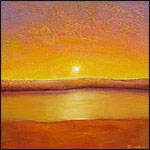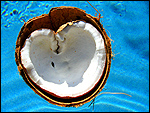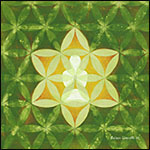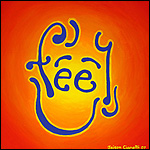As human beings we create nothing of our own, but only partake in the great creative process as conduits. So the creative position of the artist is a humbling one. The artist is essentially a channel. This can’t be any more obvious than in the abstract expressionist artist.
As you probably know, abstraction indicates a departure from reality. The need to produce and be a part of something other than the “real world” is a natural desire especially in bad times. In Europe before the 19th century abstract art wasn’t even considered art. And it wasn’t until World War II that the Americans considered the idea or perhaps just found a need for this form of expression. Jackson Pollock was at the helm of this new direction later called abstract art expressionism.
While caught in the moment, an abstract artist is often times unaware of just exactly what he or she is creating. Exploration, uncertainties, and emotions all play out on the canvas. Pollock once said, “My method of painting is a natural growth out of a need. I want to express my feelings rather than illustrate them.” So for the expressionist, the visual outcome is important, but so too is the entire action of painting. The action is like therapy for some – a means to channel feelings that need to be expressed for whatever the reason.
People question whether abstract art is actually fine art. It’s hard for some to get past the sometimes carefree appearance and non traditional methods of applied paint and foreign matter. But at the same time there is a huge following. Perhaps the intrigue comes from a simple truth – that abstract art is a very raw and unique visual language, appealing both in its form and substance from which it came.
Filed under: Abstract Acrylic Paintings | Tagged: abstract art, abstract art for sale, abstract art painting, abstract paintings | Leave a comment »






















